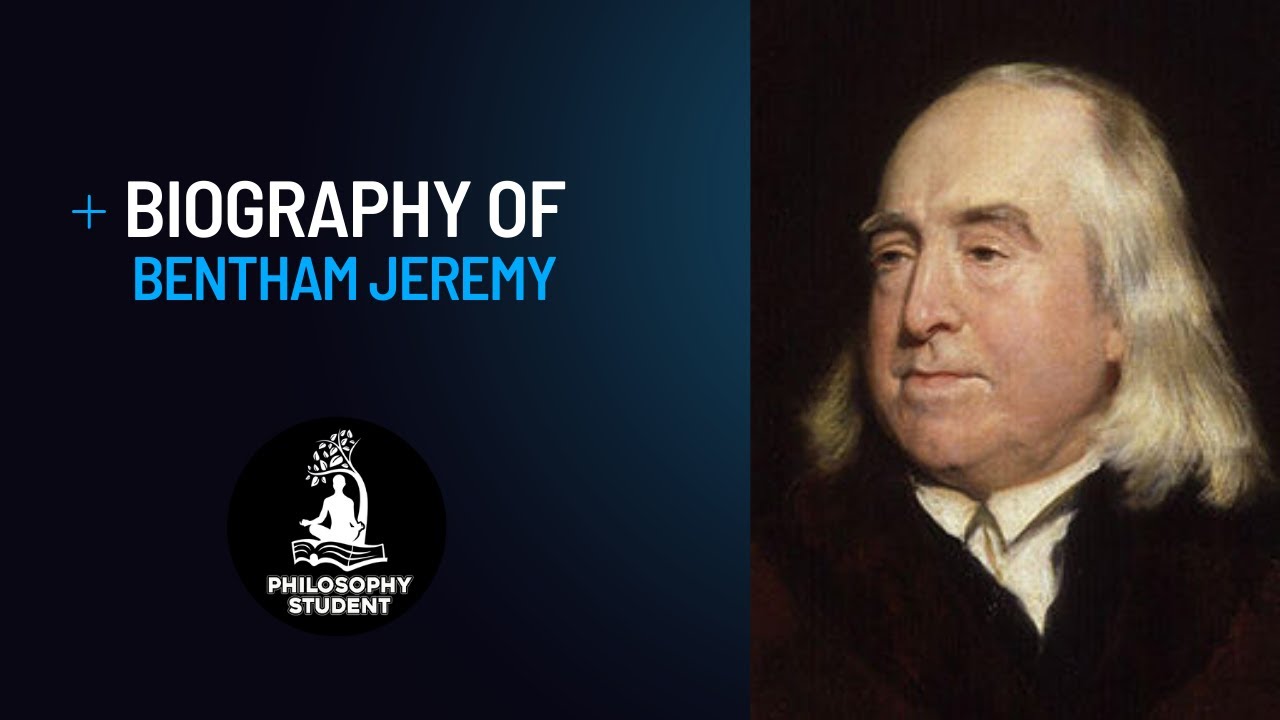Few philosophers, save Karl Marx, have had more practical impact on government and social policy than Jeremy Bentham. The core of his social philosophy, what he himself identified as its “fundamental axiom,” has driven innumerable policy decisions and criticisms: “it is the greatest happiness of the greatest number that is the measure of right and wrong.”
Jeremy Bentham was born on February 15, 1748 in London, the son of a wealthy Tory family. He was a genius, who read English as an infant, Latin by the age of three, and played Handel on the fiddle by seven. He was educated at Westminster School and, in 1760, when he was twelve, enrolled in Queen’s College, Oxford, earning his bachelor’s degree in 1763 and his master’s in 1766. Trained as a lawyer, he was called to the bar in 1769 but never practiced, having become disgusted with what he considered the unnecessary and fundamentally dishonest complexity of English law.
Despite his Tory ancestry, Bentham early on became a reformer. During 1786-1787, he visited his brother Samuel in White Russia (modern Belarus), where he served Prince Potemkin as manager of several large projects. Samuel’s idea of designing a factory as a circular building surrounding a hub, where managers could efficiently oversee workmen, inspired Jeremy to design prisons for similar efficiency, hygiene, and safety. This led to broader ideas on prison reform, although his design for the “panopticon” prison was never built.
Although the prison project proved abortive, it laid the foundation for Bentham’s career as a reformer. He started by attempting a wholesale reform of English law, which he planned to replace with the “Pannomion,” a code of law based on his core principle of promoting the greatest good for the greatest number. This philosophy would eventually command global attention and was universally known as Benthamism but is today labeled utilitarianism, which is the name that his most famous student, John Stuart Mill, gave to it.
As the entire “Pannomion” was to flow from what students of utilitarianism call the “greatest happiness principle,” so did Bentham’s whole philosophy, which encompassed law, economics, society, and ethics. The key to understanding Bentham’s utilitarianism is to appreciate how he understood the word happiness, which was as a state of being in which pleasure was allowed to predominate over pain. Thes pleasure and pain—were for Bentham humankind’s two “sovereign masters.”
Bentham believed that the morality—or moral value—of any action could be quantified and calculated in terms of the degree of happiness it created or destroyed. He called this the hedonistic or felicific calculus. Bentham classified 12 categories of pain and 14 of pleasure, offering these as the counters (“dolors” and “hedons”) with which the “happiness factor” of any action could be calculated. The idea was that an action’s moral and ethical value could be numerically expressed and compared with the value of a competing action. Ideally, the more felicific action would prevail. What must be borne in mind is that the felicific calculus was not intended to be applied to individuals but to society. The calculation that finally matters is that which reveals the greatest good for the greatest number.
Bentham applied his principle of utility in An Introduction to the Principles of Morals and Legislation (1789) as a means of reforming legislative policy such that laws would be crafted to produce the greatest amount of pleasure and the minimum amount of pain. He applied utility as well to economics, arguing for monetary expansion to create full employment and thereby evolved the basis of welfare economics, including a system of “Pauper Management” through a large system of workhouses.
While, in the view of some, Bentham’s reduction of morality to a calculus of pleasure and pain denied the existence of natural human rights, Bentham was an early advocate —perhaps the first of any significanc —of animal rights. This was no mere whim but, on the contrary, revealed much about Bentham’s ethical philosophy. Arguing against the notion that the ability to reason—exclusive province of humans—is the only viable ethical benchmark, Bentham countered with the ability to suffer, something all sentient beings possessed. Animals, then, like humans, had the right to avoid suffering, and, conversely, society and socially sanctioned authority did not have the right to willfully inflict suffering on humans or animals. Importantly, Bentham applied this same reasoning to the mistreatment of the mentally ill, of disabled people, and of slaves or others deemed to be of “inferior” races.
Bentham did not argue that killing animals for food, killing them in self-defense, or even performing medical experiments on them was immoral. In all three instances, an argument could be made that killing the animal was for the greater good. He did, however, proscribe making the animal suffer needlessly or gratuitously.
Bentham advocated total equality of the sexes, including enfranchisement, property ownership, the right to get a divorce, and eligibility for political office. Women were human beings and were part of the greatest number to whom the greatest good should be made available. He also argued against punishing homosexuality, acts which he did not consider unnatural but merely “irregularities” in sexual appetite.
Bentham died, at eighty-four, on June 6, 1832. He was closely associated with University College London, in the establishment of which he played a role. This institution became a center of research into Bentham’s philosophy and, in 1850, the home to the “Auto-icon,” a cabinet containing Bentham’s skeleton stuffed with hay and dressed in Bentham’s clothes. Bentham had willed his body for dissection by the physician George Fordyce. Even in death, Bentham wished to be of some utility.




































